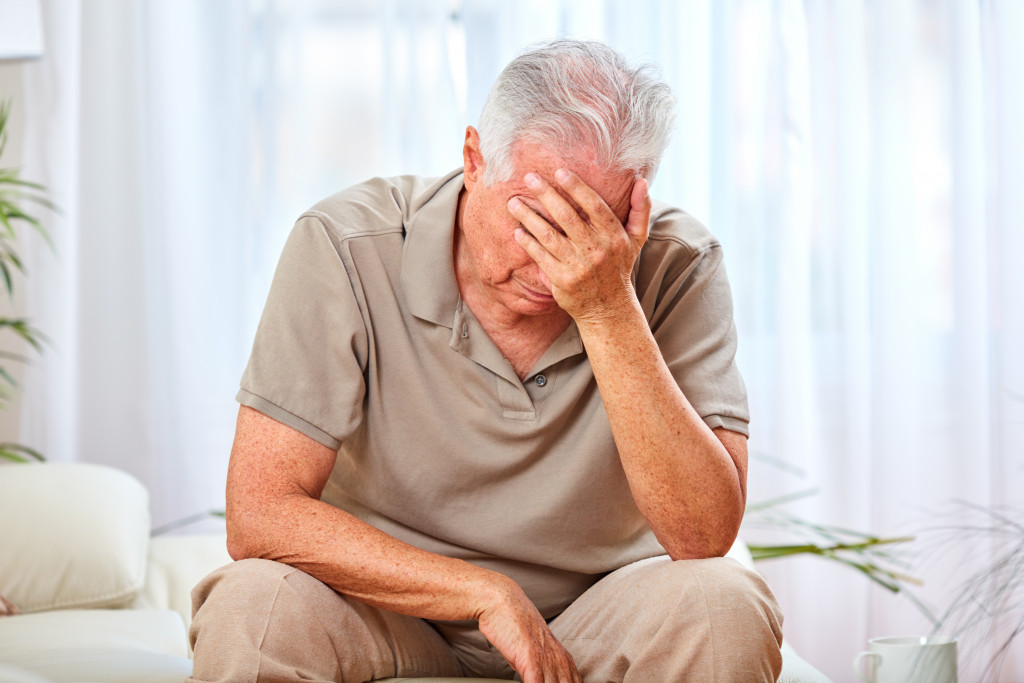• Depression, anxiety, and dementia are common mental health disorders among the elderly.
• Social isolation is a growing issue in the elderly community that leads to loneliness and an increased risk of depression and cognitive decline.
• Treatment options for these mental health disorders include psychotherapy, medications, exercise, and preventive measures.
• Professional care, such as hospice care, can be beneficial in managing symptoms of dementia.
• It is essential to seek professional help if you or a family member experience mental health issues.
As a person age, they may experience changes in their mental health. While this can be normal, it can also lead to severe mental health disorders if not addressed. Here are some of the most common mental health disorders among the elderly and how they can be treated.
Depression
Depression is a common mental health disorder that affects people of all ages, including the elderly. It is marked by sadness or emptiness, losing interest in activities once enjoyed, lack of energy and motivation, difficulty concentrating, and even suicidal thoughts. There are various treatments for depression, especially among the elderly. Here are some of them:
Ketamine
One of the newest treatments for depression in the elderly is called ketamine. It works by targeting certain brain chemicals and receptors involved in mood regulation. This treatment is very effective in treating depression, even in older adults who don’t respond well to other treatments, such as antidepressants.
Psychotherapy
Psychotherapy, or talk therapy, is another standard treatment for depression in the elderly. This type of therapy is aimed at helping individuals gain insight into their thoughts, feelings, and behaviors related to their depression. It can help them identify and challenge any negative or unhelpful thinking patterns contributing to their distress.

Exercise
Exercise is beneficial for those suffering from depression in the elderly. Being physically active can help boost mood and energy levels, reduce stress, and improve overall well-being.
Medication
Medications such as antidepressants can also treat depression in the elderly. These medications work by targeting certain brain chemicals that are involved in regulating mood and emotions. Antidepressants are usually prescribed in combination with psychotherapy to help improve symptoms of depression.
Anxiety Disorders
Anxiety disorders are another common mental health issue among the elderly population. There are various symptoms of anxiety disorders including being easily fatigued, difficulty concentrating, irritability, and fearfulness about everyday situations like going out alone or driving a car. Treatment for anxiety disorders is quite similar to depression.
Dementia
Dementia is another common disorder seen in the elderly population. It is marked by a decline in cognitive function which may include memory loss, difficulty with language, confusion about time and place, difficulty performing familiar tasks like cooking meals or paying bills, personality changes, poor decision-making skills, and even hallucinations or delusions. Dementia differs in treatments, with some recommending seniors who have it get professional care until they get better.
Professional Care
One of the main problems of dementia is that it can be hard to handle without professional care. Hospice care can help manage symptoms and allow seniors to live at home and remain independent for as long as possible. Nurses or social workers in hospices can provide the necessary support for elderly individuals with dementia.
Medications
The medications for dementia are unique in a way that they can help manage and even improve cognitive function in the elderly. Cholinesterase inhibitors, such as donepezil or galantamine, may be prescribed to help treat memory loss and confusion. Other medications may also be prescribed to minimize behavioral issues associated with dementia.
Preventive Options
There are also ways to prevent mental health issues in the elderly population. Eating a healthy diet, exercising regularly, engaging in meaningful activities, and maintaining strong social networks are all effective preventive measures for mental health problems in seniors.

Social Isolation
Social isolation has become an increasingly important issue among the elderly population due to numerous factors such as physical disability or illness that limits mobility; death of friends; family members moving away; retirement; lack of access to transportation; and lack of resources needed for social activities. Social isolation can lead to loneliness, linked to an increased risk for depression and other psychological issues such as cognitive decline. Fortunately, there are various solutions to help seniors stay connected, such as engaging in volunteer work or participating in social activities organized by community centers.
Mental health issues can be shared among the elderly population. However, with proper diagnosis and treatment, individuals can manage their symptoms and live more fulfilling life. It is essential to seek professional help if you or a family member experience mental health issues.
